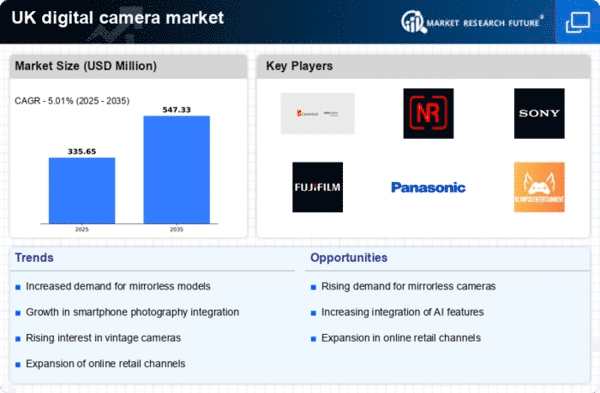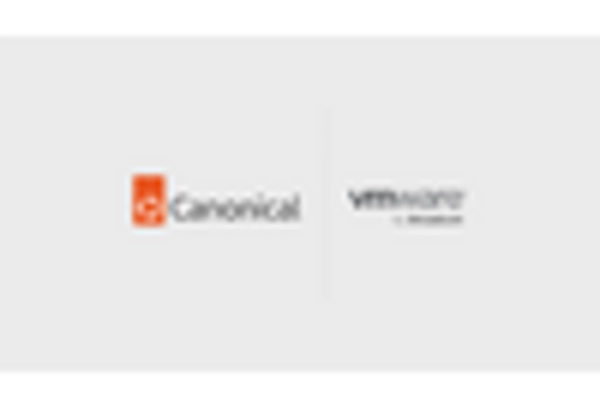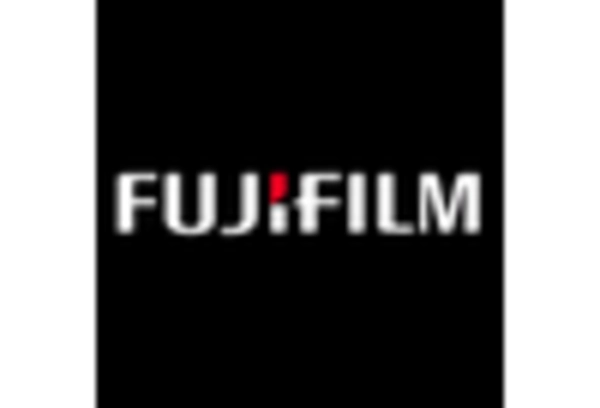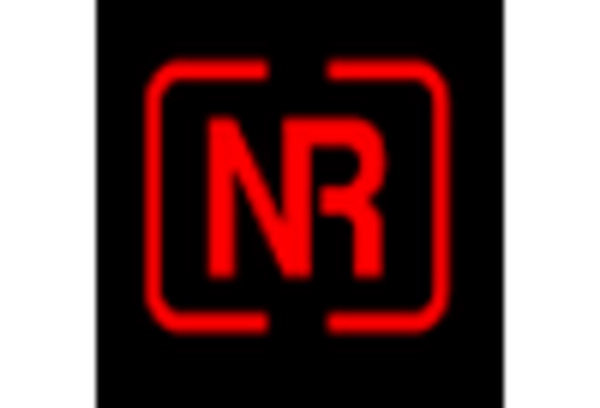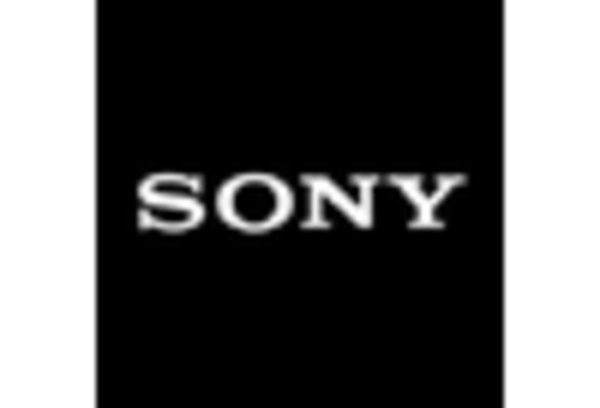Integration of Smart Technology
The integration of smart technology into the digital camera market is transforming the way consumers interact with their devices. Features such as Wi-Fi connectivity, Bluetooth pairing, and mobile app integration are becoming standard in many models. This technological evolution allows users to easily share images on social media platforms and control their cameras remotely. In the UK, approximately 40% of digital camera users report that connectivity features significantly influence their purchasing decisions. As smart technology continues to advance, it is expected that the digital camera market will see an increase in sales, particularly among younger demographics who value seamless integration with their smartphones and other devices.
Growth of Content Creation and Social Media
The rise of content creation and social media platforms has had a profound impact on the digital camera market in the UK. With the increasing popularity of platforms like Instagram and YouTube, individuals and influencers are seeking high-quality cameras to enhance their content. This trend has led to a notable increase in the sales of compact and mirrorless cameras, which are favored for their portability and performance. Recent market analysis suggests that the segment of cameras designed for vloggers and content creators has grown by over 20% in the past year. As the demand for visually appealing content continues to rise, the digital camera market is likely to expand further, catering to the needs of this burgeoning audience.
Impact of Online Retail and E-commerce Growth
The digital camera market in the UK is significantly influenced by the growth of online retail and e-commerce platforms. As consumers increasingly turn to online shopping for convenience and competitive pricing, traditional brick-and-mortar stores face challenges in maintaining market share. Recent statistics indicate that online sales of digital cameras have surged by 30% in the last year, highlighting a shift in consumer purchasing behavior. This trend compels manufacturers and retailers to enhance their online presence and optimize their digital marketing strategies. The rise of e-commerce not only facilitates easier access to a wider range of products but also encourages price competition, which may ultimately benefit consumers in the digital camera market.
Increased Consumer Demand for High-Quality Imaging
The digital camera market in the UK is currently experiencing a surge in consumer demand for high-quality imaging solutions. This trend is driven by the growing interest in photography as a hobby and the need for superior image quality in professional settings. As consumers become more discerning, they seek cameras that offer advanced features such as higher megapixel counts, improved low-light performance, and enhanced autofocus systems. Market data indicates that sales of high-end digital cameras have increased by approximately 15% in the last year, reflecting a shift towards premium products. This heightened demand is likely to propel innovation within the digital camera market, as manufacturers strive to meet the evolving expectations of consumers who prioritize image quality and performance.
Evolving Consumer Preferences Towards Versatile Equipment
Consumer preferences in the digital camera market are evolving towards versatile equipment that can adapt to various shooting conditions. This shift is evident as users increasingly seek cameras that offer interchangeable lenses, robust video capabilities, and user-friendly interfaces. The demand for hybrid cameras, which combine the features of DSLRs and compact cameras, is particularly notable. In the UK, sales of hybrid models have risen by approximately 25% over the past year, indicating a clear preference for multifunctional devices. This trend suggests that manufacturers must focus on developing cameras that not only excel in photography but also cater to the growing interest in videography, thereby enhancing their appeal in the competitive digital camera market.

